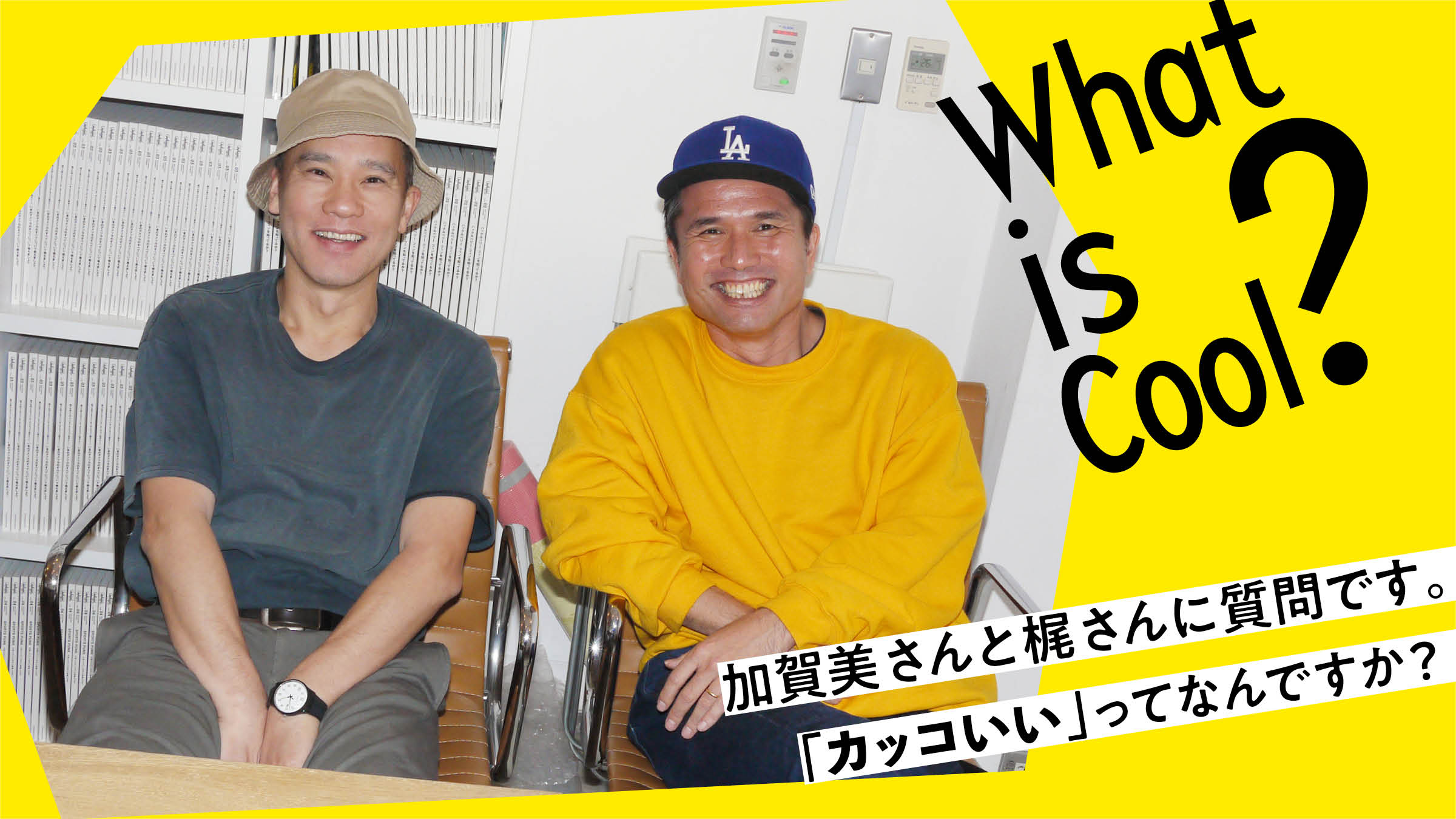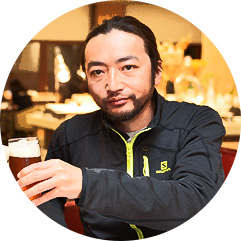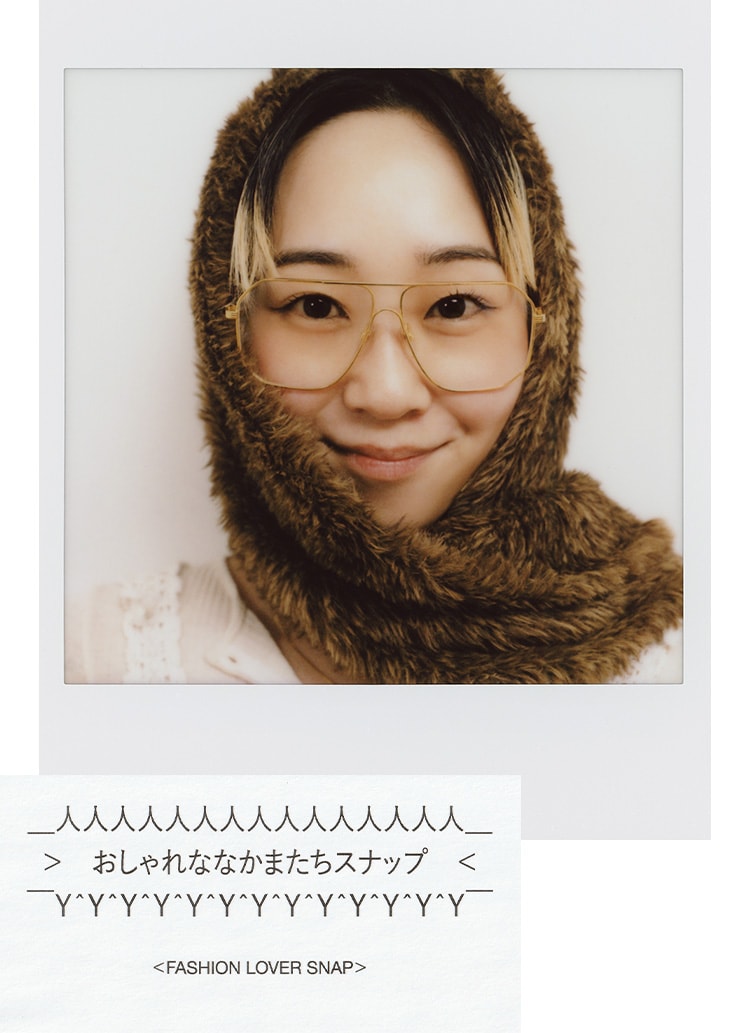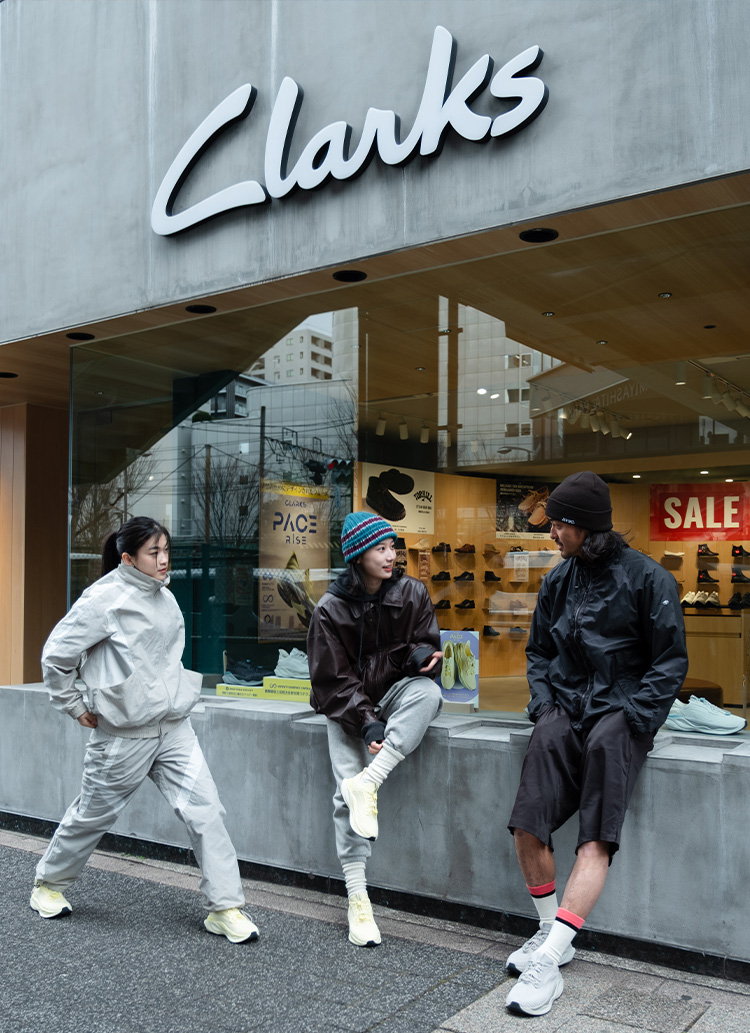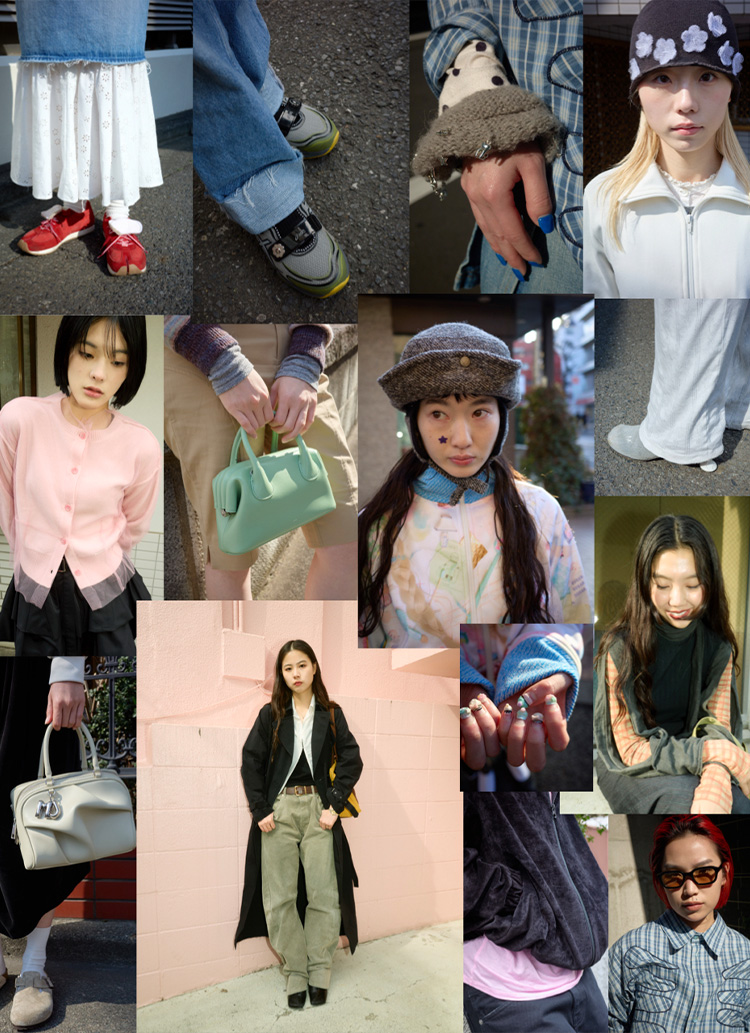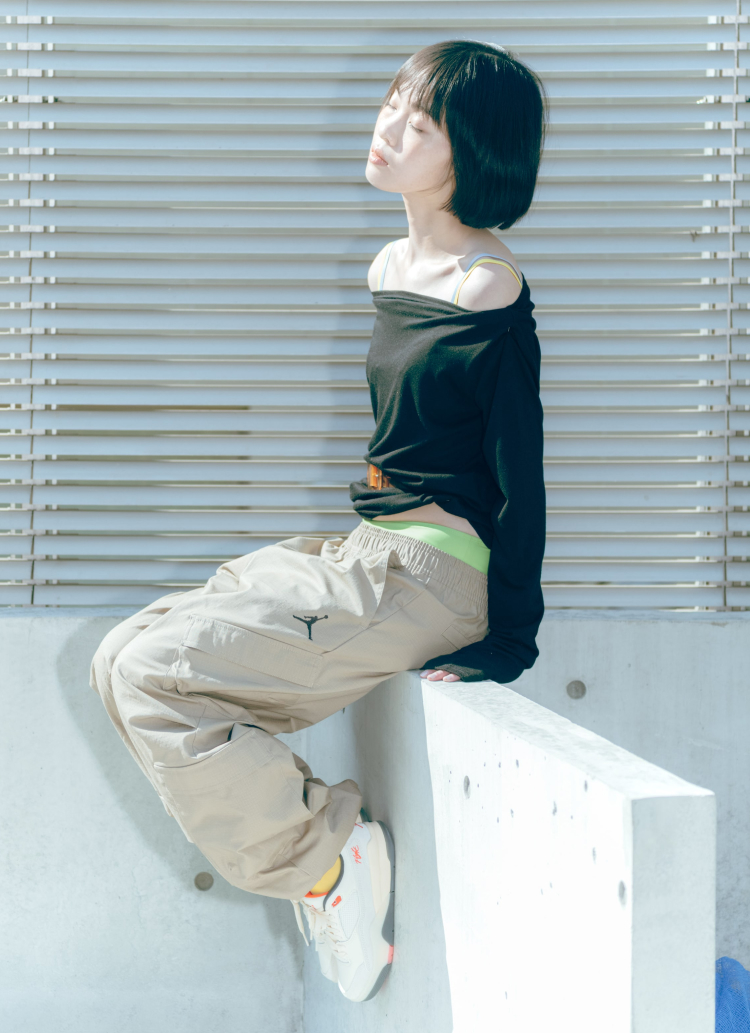You need to have a sense of expressing the correct answer that you have searched for.
Do you both want 100% to understand what you are expressing, including fashion?
Kagami:I think it's just right to say, "I don't know what it is, but it's interesting.
Kaji:Ken and I are both trying to express ourselves in a way that is easy for everyone to understand to some extent. So I don't think we are that cynical. In that sense, we can always stand in the mainstream. I think we have been preparing for that for the past 20 years (laughs).
Kagami:I'll do it!
All:LOL!

Kaji:It should be time to start talking about it (laughs). I don't think Ken and I don't want to be understood. There is nothing better than having fun.
Kagami:Of course, we welcome visitors, but after doing this for so many years, I think that even if someone thinks "Kagami-san is interesting," they don't end up coming. They are looking at it from a bit of a distance. In fact, I feel that the only clothes and art that sell are the ones that everyone says are "good. This is especially true in Tokyo. Influencers say "it's nice," and their followers believe them, and the price of artwork goes up dramatically. I don't want to go there, or I am not even hooked up to them, but I do feel a certain sense of bewilderment.
Kaji:Neither Ken nor I had any expectations from our superiors. We have done things on our own.
Kagami:Yes, I don't think that composition has changed over the past 20 years.
Do both of you have a sense of rebellion or antithesis against such a scene?
Kaji:I feel that way more than a little.
Kagami:It's a theme for me. It is a driving force for me. But if I show it, it will be seen as a corner. So you have to have a good sense of how to communicate it.
The "sense of how to communicate". This is another part of the memo.
Kagami:I think people like things that are easy to understand. Both art and fashion. I've seen Instagram and stuff like that, and they only respond to that kind of stuff.

Kaji:However, I feel that these values have been shaken a bit by Corona. People who were looking for answers in symbolic terms, such as high brands or popular brands, have lost their confidence. The world is in chaos because of Corona, and there are no more answers. That is why people who used to be skeptical about us are now thinking, "Actually, this is good, too. I think we have created a trend where people who used to be skeptical about us are now thinking, "Actually, this is good, too.
Kagami:The system is such that what young people are expressing is hooked up with big names and influencers, and then their followers see it, right? That is very frustrating. It shouldn't matter what the bigwigs and influencers think. If you think the expression is so good, why don't you just look at it directly yourself?
Kaji:Like I said, I've been a stylist for over 20 years and I've never expected anything from anyone. Of course I take care of my family and friends. But the reason why I have been able to continue is because I thought that one day I might be able to convey my ideas to young people. I thought that if young people could relate to my expression, the wind would change. I'm sure the young people are aware of it. They don't care about big names or influencers. I hope they feel that way.
I feel that today's younger generation sees things not in a top-down or bottom-up manner, but in a more flattened way. Therefore, I think that the top-down approach is no longer applicable.
Kaji:Maybe so. That may be why magazines are not selling well. Until now, we have given people the information that "this is the right answer," but now is the time for people to find the right answer on their own. And, as Ken said earlier, a sense of style is needed. A sense of expressing the correct answer that you have searched for yourself.


